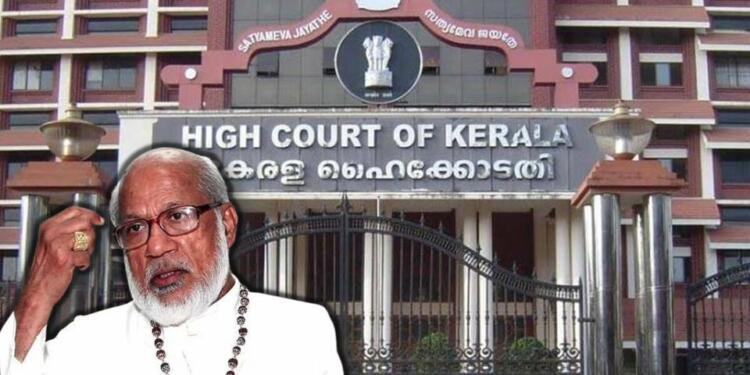George Alencherry case: If one has observed the proceedings of the High court during the last few months, their observations about the Kerala high court must be different. While all other courts have been liberal in their interpretation of statutes, the Kerala High Court has been strict in enforcing the rule of law. This time, the HC has launched a castigating attack on privilege status.
Renowned Cardinal under the grip of law
A well-known Cardinal, Mar George Alencherry, is an accused in a church land scam. George Alencherry has been booked under Sections 406, 423, and 120B, read with Section 34 of the IPC. Other than these, he is also alleged to have committed offences under the purview of Sections 409, 420, and 467 of the IPC.
Clearly, the proceedings are going to take a long time to end. Cardinal George is a major archbishop of the Syro-Malabar Church. He is quite an influential figure among his 55 lakh followers all over the world.
He told the court that he has to attend meetings worldwide in his administrative functions. On the basis of the responsibilities on his shoulders, Cardinal George wanted the Court to exempt him from appearing in person. He also cited his old age of 77 years to grant him relief.
Also read: “Rape should be considered a gender-neutral offence.” Kerala High Court on Sexual Assault
Cardinal Mar George Alencherry did not want to appear in court
For that purpose, he asked the court to consider his appeal under Section 205 of the CrPC. The code allows the magistrate to dispense with the presence of the accused in particular criminal proceedings. Now, similar relief is available under Section 317 as well. However, it seems as if the George Alencherry has hired expensive lawyers who wisely did not file a petition under the Section.
Section 317 comes into effect when a trial has begun, while Section 205 comes into effect when proceedings have begun but charges have not been made out. Moreover, more often than not, if an accused gets relief under Section 205, it is highly likely that he will keep getting it right up until the end of the trial.
The interplay of interpretations did not go in Cardinal’s favour
It was a plausible scenario in this case as well, since liberal interpretation is more likely. Cases like Puneet Dalmia v. CBI and Sarath S v. State of Kerala are recent examples of such cases. However, the Kerala High Court took a strict approach to it. This kind of approach is mainly witnessed in cases involving rape, criminal intimidation, and cheating, among others.
In this case, Sections 409, 420, and 467 of the IPC were applicable. These are serious crimes, the punishments for which are above 7 years. Citing, M/s.Bhaskar Industries Ltd v. Bhiwani Denim Apparels Ltd & Ors, the High Court observed in that Section 205 of the Crpc can be exercised in rare cases.
Furthermore, the Court stated since he is carrying out all of his administrative functions, it cannot be assumed that he is under any physical difficulty to not attend Court. Moreover, the distance between the Cardinal’s place of residence and the Court is just 3 km.
Refusing to grant relief even under Section 437 of CrPC, the Court said, “under any circumstances, it cannot be concluded that there exists exceptional circumstances which prevent the petitioner from attending the court in person, at least for the first time and executing bonds in tune with section 437(3) of the Cr.P.C.”
Also read: Kerala High Court provides relief to men hit by misandrist laws
VVIPism is against the constitutional scheme
The High Court’s judgement came as a setback for people seeking privilege on religious grounds. Our Constitution did grant some privileges to officials holding public posts, but that was because these posts are of national importance and people holding them should not be subjected to irrational torture. However, using the authority of religious eminence as an excuse for getting relief in a personal case is not justifiable.
The current Indian set-up was built after we were fed up with the British Monarchy. It provided privilege to the few while denigrating others. Surely, those people have gone, but the idea of VVIPism is still there. This needs to end, and the Kerala High Court’s decision should be commended on these grounds.
Support TFI:
Support us to strengthen the ‘Right’ ideology of cultural nationalism by purchasing the best quality garments from TFI-STORE.COM
Also Watch:
https://www.youtube.com/watch?v=BuscSmigp_0



























